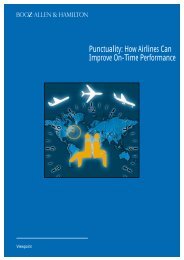The sentence
The sentence
The sentence
You also want an ePaper? Increase the reach of your titles
YUMPU automatically turns print PDFs into web optimized ePapers that Google loves.
2. accounting to and by<br />
We use according to to refer to information coming from other people or sources:<br />
according to him, according to this guide book. When we refer to ourselves, we say in my<br />
opinion (Not *according to me*). We can use by or according to when we refer to a clock<br />
or a timetable: By or According to my watch, it’s 3.15.<br />
3. across and over<br />
We can use both these prepositions to mean ‘from one side to the other’: My house is<br />
across/over the road/the river. We cannot use over for large areas: <strong>The</strong>y’re laying a<br />
pipeline across Siberia. (Not *over*) We use over after verbs like wander to mean ‘here<br />
and there’. We use across to describe movement through water: She swarm across the<br />
Channel. (Not *over the Channel*) But we say over a wall/a fence. (Not *across*)<br />
4. across and through<br />
Through, meaning ‘from one side to the other’, refers to something like a tunnel (through<br />
a pipe) or something dense (through the forest); across refers to a large area (across the<br />
desert). With some nouns, like park, we can use either across or through.<br />
5. after and afterwards<br />
We generally use a noun or pronoun with after: after lunch. We use afterwards on its<br />
own: We had a swim in the sea. Afterwards we lay on the beach. (Not *after*)<br />
6. around and about<br />
We use both words to refer to ‘lack of purpose’: We didn’t have anything to do, so we<br />
started fooling around/about. But we say He lives (a)round here. (= near) (Not *about*)<br />
7. at, to and against<br />
We use at after adjectives like good, clever. After verbs like throw, at often means<br />
‘taking aim’. Compare: throw at (to hit) and throw to (for someone to catch). When there<br />
is no idea of ‘taking aim’, we use against: throw the ball against the well. And note: fight<br />
against. We use at for speed or price: at 100 miles an hour, at $2 each.<br />
8. away<br />
Away combines with far (far away) and from (away from) and with verbs which give the<br />
idea of ‘distance’: e.g. live, work: I live 5 miles away. (Not *I live 5 miles far away*)<br />
9. because and because of<br />
We use because to give a reason: We left the party because it was noisy. We use a noun<br />
or pronoun after because of: We left the party because of the noise.<br />
10. before or in front of<br />
We often use before to refer to time (before 7); in front of (and its opposite, behind)<br />
refers to position. We can use either before or in front of after the verbs come and go.<br />
11. behind, at the back (of) and back<br />
We can put a noun or pronoun after behind (behind this house) or we can use it on its<br />
own (there’s a garden behind). Or we can say: at the back of this house, it’s at the back.<br />
Do not confuse back with again: invite them back means ‘return their hospitality’. Don’t<br />
use back after return: We returned early. (Not *returned back*) Note 3 years back<br />
(= ago).<br />
48




